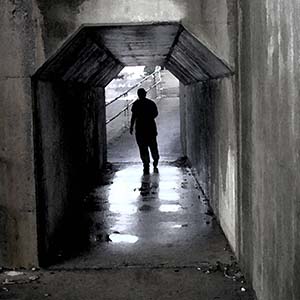United States v Hudson and Goodwin: Jurisdiction Over Criminal Matters
Historical
In United States v Hudson and Goodwin, 11 U.S. 32 (1812), the U.S. Supreme Court first considered whether the federal courts were authorized to hear criminal cases. The justices held that Congress must confer jurisdiction by statute in order for the court to render a conviction.
The Facts in United States v Hudson and Goodwin
Defendants Barzillai Hudson and George Goodwin were indicted for libel after accusing the President of the United States and Congress of secretly voting to give Napoleon Bonaparte $2 million to make a treaty with Spain. The Circuit Court was split on the question of whether it could exercise common law jurisdiction over criminal libel cases.
The Court’s Decision in United States v Hudson and Goodwin
The Court concluded that the Circuit Courts of the United States cannot exercise a common law jurisdiction in criminal cases. As Justice William Johnson noted, the authority of the U.S. Supreme Court is set forth in Article 3, Section 2 of the U.S. Constitution, while the jurisdiction of the lower federal courts must be established by statute. Justice Johnson further explained:
The course of reasoning which leads to this conclusion is simple, obvious, and admits of but little illustration. The powers of the general Government are made up of concessions from the several states–what ever is not expressly given to the former, the latter expressly reserve. The judicial power of the United States is a constituent part of those concessions–that power is to be exercised by Courts organized for the purpose, and brought into existence by an effort of the legislative power of the Union. Of all the Courts which the United States may, under their general powers, constitute, one only, the Supreme Court, possesses jurisdiction derived immediately from the Constitution, and of which the legislative power cannot deprive it. All other Courts created by the general Government possess no jurisdiction but what is given them by the power that creates them, and can be vested with none but what the power ceded to the general Government will authorize them to confer.
Since the jurisdiction of the courts is limited, the Court held that “[t]he legislative authority of the Union must first make an act a crime, affix a punishment to it, and declare the Court that shall have jurisdiction of the offence.”
Previous Articles
SCOTUS Decision in Bowe v. United States Is First of the 2026 Term
by DONALD SCARINCI on February 5, 2026
In Bowe v. United States, 607 U.S. ___ (2026), the U.S. Supreme Court held that Title 28 U.S.C. § ...
SCOTUS Rules State Can’t Immunize Parties from Federal Civil Liability
by DONALD SCARINCI on January 29, 2026
In John Doe v. Dynamic Physical Therapy, LLC, 607 U.S. ____ (2025) the U.S. Supreme Court held that...
Supreme Court to Address Racial Discrimination in Jury Selection
by DONALD SCARINCI onWhile the U.S. Supreme Court has concluded oral arguments for the year, it continues to add cases t...
The Amendments
-
Amendment1
- Establishment ClauseFree Exercise Clause
- Freedom of Speech
- Freedoms of Press
- Freedom of Assembly, and Petitition
-
Amendment2
- The Right to Bear Arms
-
Amendment4
- Unreasonable Searches and Seizures
-
Amendment5
- Due Process
- Eminent Domain
- Rights of Criminal Defendants
Preamble to the Bill of Rights
Congress of the United States begun and held at the City of New-York, on Wednesday the fourth of March, one thousand seven hundred and eighty nine.
THE Conventions of a number of the States, having at the time of their adopting the Constitution, expressed a desire, in order to prevent misconstruction or abuse of its powers, that further declaratory and restrictive clauses should be added: And as extending the ground of public confidence in the Government, will best ensure the beneficent ends of its institution.





